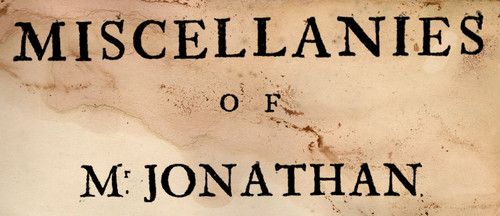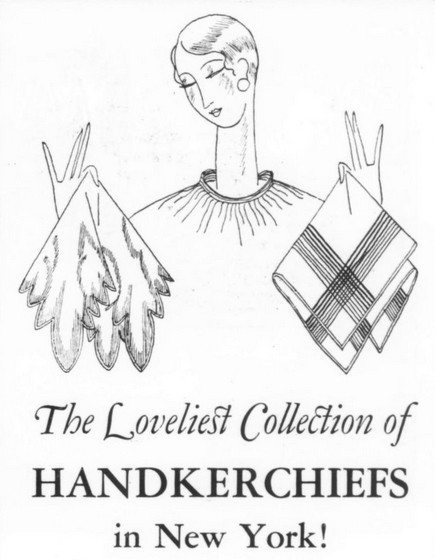 |

unearths some literary gems.
From The Three Taps, by Ronald Knox:
[Another fun one! Again, I'm surprised I hadn't found my way to Knox sooner. I suppose opportunity Knox* on its own schedule.*"Opportunity Knox" would make a good burlesque name, eh?]***[Re. an insurance company, the Indescribable, whose offices are in a building called Indescribable House.]The chicken-farmer whose hen-houses are fitted with the company’s patent automatic egg-register can never make a failure of his business. The egg is no sooner laid than it falls gently through a slot which marks its passage on a kind of taximeter; and if the total of eggs at the end of the month is below the average the company pays—I had almost said, the company lays—an exact monetary equivalent for the shortage.***He had a short black coat with very broad and long lapels, a starched collar that hesitated between the Shakespeare and the all-the-way-and-back-again patterns.[I think "all-the-way-and-back-again," as a fashion term, may be a one-off coinage.]***She always underestimated quantity, referring to a large tureen as “a drop of soup,” and overestimated quality, daily suggesting for her guests’ supper “a nice chop.” The chop always appeared; the nice chop (as the old gentleman pointed out) would have been a pleasant change. As surely as you had eggs and bacon for breakfast, so surely you had a chop for supper; “and some nice fruit to follow” heralded the entrance of a depressed blanc-mange (which Mrs. Davis called “shape,” after its principal attribute).***“Miles, I will not have you talking of poor old Edward like that.”“Who told you his name was Edward?”“It must be; you’ve only to look at him. Anyhow, he will always be Edward to me.***The chair into which the visitor was shepherded was voluminous and comfortable; you could not sit nervously on the edge of it if you tried.***“You have not been to America? The anecdote there is in its first youth; the anecdotes mostly in their extreme old age.”***"I shall console myself by talking to the barmaid, and finding out if she’s capable of saying anything except ‘Raight-ho.’"***"But to-night, at supper, she was jumpy—even you must have noticed it. She almost dropped the soup-plates, and the ‘shape’ was quivering like a guilty thing surprised.”***The sun rose bright the next morning, as if it had heard there was a funeral in contemplation and was determined to be there.***Mr. Simmonds approached the handkerchief question with the air of being just the right man to come to. Other things, you felt, were to be bought in this shop: teethers, for example, and walking-sticks, and liquorice, and so on. But when you came to *handkerchiefs*, there you had found a specialist, a man who had handled handkerchiefs these fifteen years past. Something stylish, perhaps, was required? This with a glance at the customer, as if to size him up and recognise the man of taste. “The *plain* ones? Just plain white, you mean, sir? Well, it’s a curious thing, but I’m not certain I can lay my hand on one of them. You see, there’s more demand for the coloured ones, a bit of edging, anyhow. And, you see, we haven’t got in our new stock yet.” (They never have got in their new stock yet at Simmonds’s.) “Three weeks ago I could have done you a very good line in the plain ones, but I’m rather afraid we’re right out. I’ll just see.”This was followed by an avalanche of drawers, containing handkerchiefs of every conceivable variety that was not plain. A violent horseshoe pattern that ran through all the gamut of the colours; a kind of willow pattern; a humorous series featuring film stars; striped edges, spotted edges, check edges—but no plain. From time to time Mr. Simmonds would draw attention to the merits of the exhibits, as if it were just his luck that his customer should be a man so unadventurous in taste. “Now, that’s a very good number; you couldn’t get a better line than that, not if it was a coloured handkerchief you were wanting. . . . No, no, sir, no trouble at all; I daresay perhaps I may be able to lay my hand on the article you require. . . . You don’t fancy those, now? Those come very cheap because they’re bankrupt stock. Just you feel that, sir, and see what a lot of wear there is in it! . . . Yes, that’s right, they’re a little on the gay side, sir, but we don’t get any real demand, not for the plain ones; people don’t seem to fancy them nowadays. Mind you, if you’ll be staying on here for a day or two, I could get you some; we shall be sending into Pullford the day after to-morrow. But at the moment we seem to be right out of them. . . . Oh, you’ll take the check ones . . . half a dozen? Thank you, sir; you’ll find they’re a very good line; you could go a long way and not find another handkerchief just like that one. It’s a handkerchief we’ve stocked many years now, and never had any difficulty in getting rid of it. And the next article, please?”But Bredon did not meditate any more purchases. He had begun to realize that in Chilthorpe you bought not the thing you wanted but the thing Mr. Simmonds had in stock.[N.B. The New Yorker issue that I was reading concurrently played along here--see attached.]***In front of the Load of Mischief stands an ale-house bench—that is the description which leaps to the mind. Ideally, it should be occupied by an old gaffer in a white smock, drinking cider and smoking a churchwarden. A really progressive hotel would hire a gaffer by the day to do it. A less appropriate advertisement, yet creditable enough to the establishment in the bright air of the June morning, Angela was occupying this seat as her husband came back from his shopping; she was knitting in a nice, old-fashioned way, but spoilt the effect of it rather by whistling as she did so.***"Don’t you feel sometimes as if the whole of human life on this planet were a mere episode, and all our boasted human achievement were a speck on the ocean of infinity?”“Sometimes. But one can always take a pill, can’t one?”***"Let us eat and drink, Mrs. Davis’s ‘shape’ seems to say to us, for to-morrow we die.”***The old gentleman was rubbing his hands briskly in the enjoyment of retrospect; he had scarce any need of breakfast, you would have said, so richly was he chewing the cud of his experiences overnight.***
|




